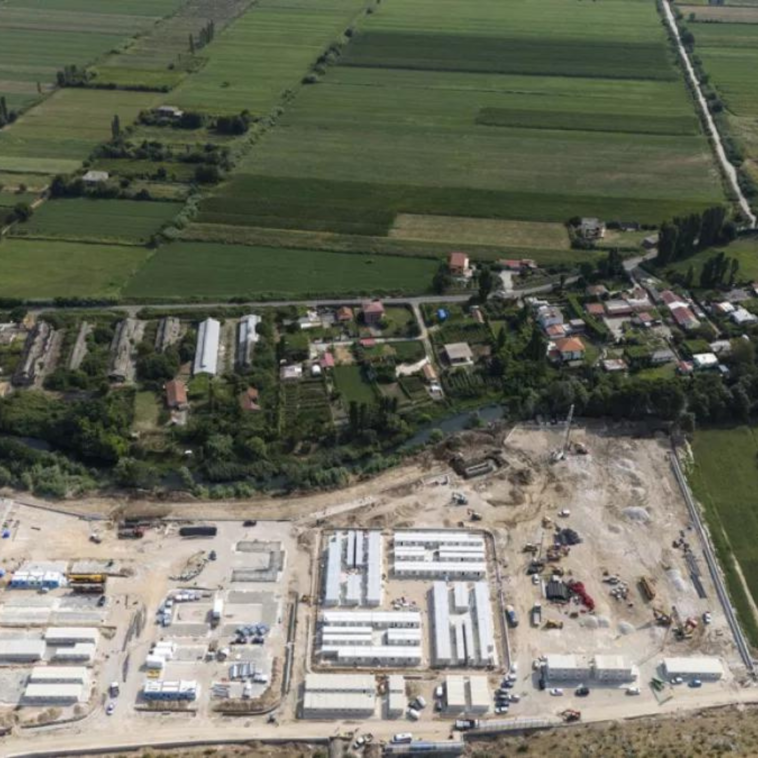Italy is partially outsourcing the challenge of irregular migration by opening the first of two planned camps in neighboring Albania.
As part of Europe’s first “offshoring” strategy, the camps will host up to 3000 migrants each month who are rescued en route to Italy, providing temporary housing while the continent works out how to address the problem of irregular migration.
“It’s like having a center in Italy – but in Albania.”
The Italian government is managing the newly opened camp in Shengjin, Albania, while a second center is set to open at a former air force base in Gjader.
The camps will be used for migrants picked up in International waters. Once there, they can request asylum in Italy. They will be returned to nations deemed safe for their return if they are refused.
Fabrizio Bucci, Italy’s ambassador in Albania said “Italian and European legislation will be applied in these centers, It’s like having a center in Italy – but in Albania.”
Agreement signed for 5 years with an option for extension
Italian and Albanian Prime Ministers have signed a five-year agreement to reduce migrant arrivals in Italy. The agreement, which could be extended if successful, aims to deter some from attempting to come.
Italy’s sea arrivals have dropped by over half from 2023.
Estimated to cost €650 million (£547), the accord is a cornerstone of Italian Prime Minister Giorgia Meloni’s vow to tighten immigration controls.
However, opposition politicians and human rights groups have criticised the hefty price tag.
Riccardo Magi, an MP with the left-wing stated “It’s an excessive cost to detain a limited number of migrants.” He approached Ms. Meloni’s car to voice his disapproval during her recent visit to the location in Albania, and Albanian security personnel grabbed him in the process. “If they treat an elected MP like this, imagine how they’ll treat the migrants,” he yelled.
Mr. Magi compared the structures to a penal colony and questioned the effectiveness of night-time rescuers in screening individuals to prevent their transfer to Albania.
“They won’t be able to delve deep into whether somebody has suffered torture or sexual violence or discrimination due to their sexuality back in Africa”, Mr Magi said “It’s all an attempt at dissuasion and a PR show to tell Italians this is the first time a government can keep migrants out. But nobody who has risked their life to cross to Italy will be discouraged.”
“It’s one of the elements that migrants and smugglers will have to factor in.”
Fabrizio Bucci, disagreed with the critics, he said “It’s one of the elements that migrants and smugglers will have to factor in, What do we have to lose? We’ve been trying to redistribute migrants throughout the EU and it hasn’t worked. So why not try to chart a new way?”
15 EU members, including Denmark, have written an open letter to the European Commission supporting the outsourcing of migration.
Sir Keir Starmer praised the Italy-Albania deal, drawing comparisons to the previous Conservative government’s plan to deport failed asylum seekers from the UK to Rwanda. However, the agreements are different, with Rwanda managing asylum requests and centers, and Albania under Italian jurisdiction.
“We made sure the Albanian legislation was already in full compliance with EU and international laws”, said Ambassador Bucci.
The benefit for Albania is an improvement in its standing as it negotiates membership in the European Union.





GIPHY App Key not set. Please check settings